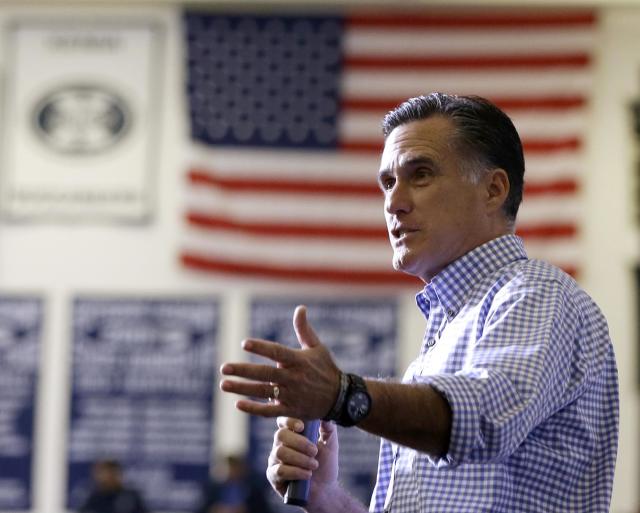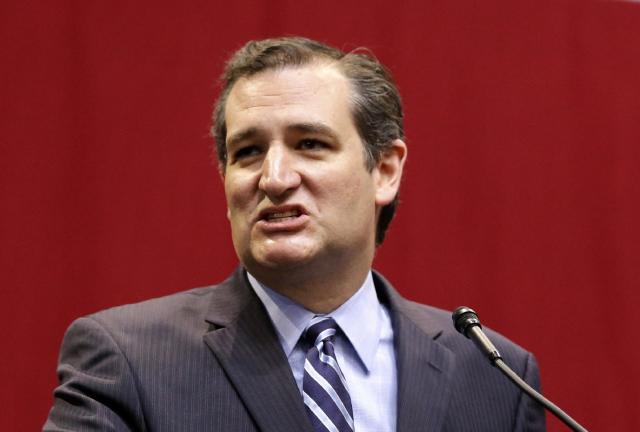Vastly changed electoral system presents risks and opportunities for Jeb Bush
His money advantage may be diminished, but online organizing could be a path through the primary

WASHINGTON – Former Florida governor Jeb Bush on Tuesday stepped into a system of presidential politics that differs dramatically from the one his father and brother used to win office, potentially diminishing Bush's dynastic advantages but also offering him a possible path to victory through the mine-strewn Republican primary.
Jeb's brother George W. Bush ran for president when the Internet was still new and email was exotic. He ran for reelection in 2004, the same year that Howard Dean became the first presidential candidate to raise significant amounts of money online. In 2008, a year after Jeb Bush left Florida’s governorship after two terms, U.S. Sen. Barack Obama relied on small online donations to counter the massive amount of money flowing to Hillary Clinton’s presidential primary campaign. Then in 2010, the age of the Super PAC was unleashed by the Supreme Court’s decision in Citizens United v. Federal Election Commission.
Small dollar donations and Super PACs are the dual forces that a potential Bush candidacy must now confront. They will diminish the advantages he would have had under the old presidential system, in which his brother and father’s network of wealthy patrons would have given him access to sum few others could hope to raise.
“Between 2000 and today it’s an entirely different game. It’s not even Canadian football and American football. It’s Australian football and American football,” said Dave Carney, a New Hampshire-based Republican consultant who ran Texas Gov. Rick Perry’s 2012 presidential campaign.
In 2012, the most well-funded Republican in a crowded primary was Mitt Romney, but he had to deal with multiple candidates in the primary who fought him past the early primary states and deep into the spring with the help of one well-heeled backer each. Newt Gingrich had casino magnate Sheldon Adelson. Rick Santorum had investment manager Foster Friess.

Bush could face one or several similar candidates who have captured the interest and ego of a billionaire and get house money to play with.
Then there are the likely candidacies of Sen. Rand Paul (R-Ky) and Sen. Ted Cruz (R-Tex), which both figure to be digitally savvy and focused on raising money online. Paul will look to do so in part from new sources like younger voters, civil libertarians and conservatives in the tech community, while Cruz is focused on the conservative grassroots.
Republicans have not been competitive with Democrats in the online fundraising realm. But in 2014, the Republican Senatorial Campaign Committee raised $18 million online. It was still far behind where Democratic committees ended up but it was still the first time that Republicans raised a meaningful figure online through the labor-intensive work of building and mining an email list.
The rise of Super PACS and online giving is a double-edged sword. While the new landscape could make it easier for candidates who lack Bush’s built-in money advantage to compete with him, it could also present an opportunity for the nonconformist campaign that Bush obviously wants to run.
Bush is far to the left of the conservative base on immigration and education. He favors a path to legal status for undocumented immigrants and is married to a Mexican-born daughter of a migrant worker for whom English is a second language. And he is an advocate for Common Core, the national education standards seen as the latest example of federal overreach by many on the right.
Earlier this month, Bush said that, for a Republican to win the presidency, it might be necessary to “lose the primary” election. In his interview with WPLG Local 10 TV in Miami last weekend he said this comment meant that “you have to be true to who you are.” Bush rejected “the old days, the kind of, if you were in a back room with political operatives, they say, ‘Now, okay, here’s the plan: shift to the left, you know, and then move back to the center' if you’re a Democrat, or do the same on the right.”

Bush’s talk of authenticity is nice, but he still will need votes to win the primary. A run to the middle in a Republican primary would require the recruitment and activation of new participants in the process. And it’s here that the new models of online engagement, data-driven identification of likely supporters, and online fundraising could present an open door for a candidate like Bush.
“Jeb has some nontraditional views in the terms of a Republican primary. Maybe he’s able to build a base of support using online money,” said an official at the National Republican Senatorial Committee. “I don’t think the mere act of raising the money would help you win the primary but if you reinvest that money into grassroots programs then it could.”
The question then is whether Jeb is gearing up to run a campaign that would invest heavily in raising money online, activating new networks of voters through social media, all to expand the Republican primary electorate and do an end around the conservative base.
Bush announced on Facebook Tuesday that he was forming a political action committee to “actively explore the possibility of running for President of the United States.” He did so on the social media hub rather than in an interview with a major TV network or in his commencement speech at South Carolina on Monday.
“By sharing on a social platform, he can start tracking who is interacting, how they are interacting, and what they want to talk about,” said Will Conway, with the nonpartisan digital firm NationBuilder. “He used the announcement as an opportunity to build real, powerful, one-to-one relationships with lots of people. That's crucial. This is a strong first step to a well-coordinated digital effort.”

The question is whether Bush is actually doing the hard work of building a database of likely supporters, or whether he just made his announcement on Facebook for kicks.
Bush said over the weekend that he was “digital before digital was cool.” To bolster this impression, he said in the same interview that he would release 250,000 e-mails that were sent by himself and others in his administration during his time as Florida’s governor.
But that disclosure is required under Florida law, and is less a sign of digital edginess and transparency and more a sign of political savvy.
In addition, Bush’s announcement on Tuesday included no mechanism to capture the email addresses of potential supporters or interested voters. There was no website link to go to. It appeared to be a missed opportunity to begin building an online network.
Such a network might represent his best hope of making it through the Republican primary with the kind of candidacy he hopes to conduct.




